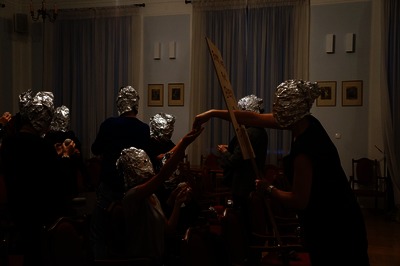REEVE, Hester (2016). The Stoned Tongue. [Show/Exhibition] [Show/Exhibition]
Documents
14512:98215
Image (PNG) (Documentary photograph)
DSC04970_ N stone chair.png - Other
Available under License All rights reserved.
DSC04970_ N stone chair.png - Other
Available under License All rights reserved.
Download (5MB) | Preview
14512:98216
Image (JPEG) (Documentary photograph)
DSC04988__ placard.JPG - Other
Available under License All rights reserved.
DSC04988__ placard.JPG - Other
Available under License All rights reserved.
Download (3MB) | Preview
14512:98217
Image (PNG) (Documentary photograph)
DSC04992_ placard gifts.png - Other
Available under License All rights reserved.
DSC04992_ placard gifts.png - Other
Available under License All rights reserved.
Download (3MB) | Preview
14512:98219
Image (PNG) (Documentary photograph)
TSZ Stone Knew.png - Other
Available under License All rights reserved.
TSZ Stone Knew.png - Other
Available under License All rights reserved.
Download (3MB) | Preview
Abstract
'The Stoned Tongue' was part spoken word, part body-based action and part ‘stone’ action and based upon extracting visceral forces from Nietzsche’s ‘Thus Spoke Zarathustra.’ It was presented at 'Performing Situated Knowledges: Space, Time, Vulnerability' (7th Annual New Materialisms conference), Institute of Philosophy and Sociology, Polish Academy of Sciences, Warsaw.
My research inquiry, in line with the conference themes, examined what happens when a ‘creator’ (my preferred word for certain thought-intensive philosophers, artists, writers, scientists etc.) pushes thought within their chosen medium to the degree that it becomes ‘vulnerable.’ To my mind, in ‘Thus Spoke Zarathustra,’ Nietzsche pushes his thought to the degree that he allows non-human matter into the force of the pages. The vulnerability arises because, once this force is picked up upon, the writer and the reader are thrown into a reflexive paradox whereby the utter artifice of words in relationship to ‘isness’ can no longer be be avoided yet at the same moment one is struck with excitement by their ‘beauty.’ To some degree this is the mattering of matter, a making of a meaningful experience that is also a de-stabilising of our confidence to know matter in anyway at all (and this is the excitement, there is something ethically productive about this excitement). This vulnerability also refers back to the creator who on some levels ‘falls apart’ since their seat of reflexive being is situated in alphabetic language in the first place.
As part of the research I transformed a paperback edition of 'Thus Spake Zarathustra' into a series of rocks (made from pulped paper) and cast my own tongue in cement. These items were incorporated into the presented action which was interactive.
More Information
Statistics
Downloads
Downloads per month over past year
Share
Actions (login required)
 |
View Item |


 Tools
Tools Tools
Tools![[thumbnail of Documentary photograph]](https://shura.shu.ac.uk/14512/1.hassmallThumbnailVersion/DSC04970_%20N%20stone%20chair.png)

![[thumbnail of Documentary photograph]](https://shura.shu.ac.uk/14512/3.hassmallThumbnailVersion/DSC04992_%20placard%20gifts.png)

![[thumbnail of Documentary photograph]](https://shura.shu.ac.uk/14512/4.hassmallThumbnailVersion/TSZ%20%20Stone%20Knew.png)

